Uncertainty Weighs on Tanker Markets -MSI
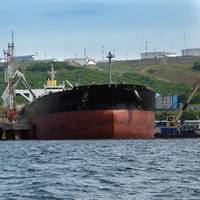
Increasing port delays in Asia, U.S. and Europe will provide only limited support and MSI predicts rates will fall further in Q3.After three months of OPEC+ production cuts, tanker markets are feeling the pressure with both crude and products sector earnings moving lower in July according to Maritime Strategies International.Back in May MSI forecast quarterly average Aframax one year time charter rates to fall from $32,400/day to $21,600/day at a time when spot markets were seeing record levels.
MSI: OPEC’s cut is deepest for VLCC, Suezmax markets
Maritime Strategies International (MSI), a leading independent research and consultancy has forecast a testing time for the crude tanker market over the next six months – and perhaps longer if OPEC is successful in extending production cuts beyond the first half of 2017. In its latest Tanker Freight Forecaster* MSI notes that the VLCC and Suezmax markets moved unequivocally downwards in January, with spot rates sliding rapidly from a seasonally strong December. Pressure has persisted in these sectors in February leaving the crude tanker spot market under increasing strain. More mixed dynamics and volatile conditions characterised the Aframax and product tanker sectors in January…
How Will OPEC’s Cuts Affect Tanker Markets?
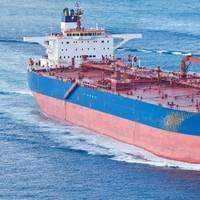
After a year of tumultuous political and policy upheaval, both oil and tanker markets are undergoing a process of rebalancing. The fourth quarter of 2016 is capping what has been a mixed 12 months for the tanker markets. The agreement by OPEC members and non-members alike to cut production in an attempt to reduce oversupply will be a core determinant of conditions in 2017. The latest MSI Quarterly Tanker Market analysis finds that despite the cuts having a limited negative near-term impact, there are reasons to be positive on prospects for the longer-term.
Tanker Market: ‘New Normal’ Drives Downbeat Summer Sentiment
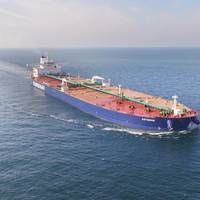
The tanker market is forecast to see challenging conditions with technical and structural factors impacting earnings, according to independent research and consultancy firm Maritime Strategies International (MSI). In its latest Tanker Freight Forecaster, MSI dismisses claims that current conditions in the bellwether VLCC freight market are entirely due to seasonality. Instead, MSI says dynamics reflect lower rates of crude import growth across the year combined with reduced waiting times and, in particular, much higher deliveries.
VLCC Earnings Set for Strong Growth
London, December 15, 2015. The latest Tanker Freight Forecaster from Maritime Strategies International predicts further upside volatility in the crude tanker market in 2016 as a result of OPEC’s decision to effectively maintain oil output levels. Average VLCC spot earnings for the Baltic Exchange’s ME-Japan voyage (TD3) have exceeded $100,000/day in the first half of December. Over the six-month horizon of the latest report, upside potential remains high, with a combination of burgeoning trade and continuing low prices supporting global oil consumption and suppressing domestic crude production in North America. Logistical constraints continue to restrict tonnage across markets with weather playing an important role recently as well.
China’s Currency Devaluation Good for Shipping
The depreciation of the Chinese currency will help both international and domestic shipping operators in the region that have been stuggling of late with growing costs and rising competition, says Maersk. Xinhua quoted Tim Smith, chairman of Maersk China and chief representative of Maersk Group North Asia sa saying that the business prospects in China despite the global trade downturn and question marks over the impact of the recent weakening of the yuan. The group's revenue in China has roughly doubled since 2009, which is the biggest origin market for its container shipping business, he said. He also revealed his company is looking to order more vessels from Chinese shipbuilders…
Maersk Line Gets New Head in China
Maersk Line on May 21 announced that Mike Fang become the company's new chief of east - and central China. He joins with effect from 1 July 2015. Fang has been head of Maersk Line North China since 2012. He replaces David Williams, who will become the new CEO of Safmarine. IHS Maritime 360 quoted Tim Smith, CEO of Maersk Line North Asia as saying that Mike had been appointed head of the organization in eastern and central China. Tim said that Mike with his expertise in local market and extensive experience would provide great value to the organization in eastern and central China. Fang started in Maersk Line as a sales representative in 1994. In the last 21 years, he has been head of the department and Shenzhen sales manager for eastern China in Maersk Line.
Northern Irish Wind Energy Delegation
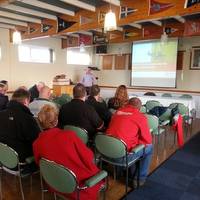
CWind hosted a delegation of 20 businesses from the south east region of Northern Ireland on Tuesday this week. The delegation, led by Energy Connections NI and hosted by the East of England Energy Group (EEEGR) was in the area this week to see first-hand how businesses here have taken advantage of the supply chain opportunities on offer and exchange thoughts on the renewable energy sector with East of England experts. CWind shared insights into its own experience of growing a business in the offshore wind supply chain with the delegation over coffee and tea at the Brightlingsea Yacht Club.
CWind to Expand Presence in Operations & Maintenance Phase

CWind, a provider of services to the offshore wind industry, is expanding its services in the operations and maintenance phase of offshore wind farms. The company, which has supported the construction of close to 20 offshore wind farms over the last four years, has announced the appointment of Tim Smith as Sales Manager. Mr Smith joins CWind from Fendercare Marine, part of James Fisher and Sons plc, where he held the position of Business Development Manager for the past four years.
Unusually, Shipping Coalition Demands an ECA
A coalition of shipping companies wants the Pearl River Delta cleaned up and turned into a low emission zone. The call, from the Hong Kong Liner Shipping Association (HKLSA) and the Hong Kong Shipowners’ Association (HKSA) in conjunction with 17 shipping companies came along with a renewed, one-year pledge from the shipping companies to burn only low-sulfur fuels while berthed in Hong Kong, reports the China Daily. The coalition wants low sulfur emissions mandated by laws by January 2014. But in the meantime, the coalition is also recommending that authorities provide incentives, such as a 50 percent cut in port fees for vessels that come into voluntary compliance, prior to the January 2014 deadline. The alliance wants to increase its reach, beyond Hong Kong however.
Maersk Line CEO Cautiously Optimistic
Tim Smith, Maersk Line’s North Asia CEO, reflects on 2012 being quite a volatile year, but sees an increase in the Asia-Europe container trade. The biggest challenge for the entire industry is overcapacity, said Smith. “In these volatile markets we have seen a lot more capacity coming into the market the last couple of years than is needed by the lower levels of demand. ” Last year that overcapacity was managed tolerably well by taking out ships, scrapping them, slowing ships down or idling them for shorter or longer periods. “We managed to balance supply and demand,” said Smith, “and that is the game we need to play again in 2013. ” 2012 was “a bit of a roller-coaster for us and for our customers,” said Smith.
Asia-Europe Trade May Grow Until February
Maersk Line believe demand for trade on its Asia- Europe route may grow until Lunar New Year in February. Imports into China have also helped increase demand as raw materials are shipped to Asia’s largest economy for final assembly while local consumers increase spending, Bloomberg learned from Tim Smith of Maersk Line in a Hong Kong television interview. A year-end surge in demand also prompted the container line, owned by A.P. Moeller-Maersk A/S, to put some unused ships into service after idling 21 percent of its fleet last year. Source: Bloomberg
Maersk Loads One-millionth TEU in Quingdao, China:
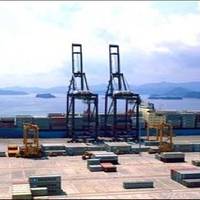
For the first time, Maersk Line’s throughput in the Port of Qingdao exceeded one million TEU in a single year. The full-year estimate of Maersk Line’s throughput will be around 1.2 million TEU for 2012, which is around 37% more than the 873,000 TEU of 2011. Maersk Line’s presence in Qingdao has come a long way. As recently as 1994, the carrier only moved 10,000 TEU. In less than 20 years, this throughput has grown to a million. In 2004, Maersk Line expanded the service in Qingdao to deploy direct calls for European trades…
China on Way to Economic Upgrade Says Maersk CEO
China's decline in exporting this year may be a consequence of it becoming a manufacturer of more sophisticated products. Soren Skou, CEO of Maersk Line, the container unit of the Danish shipping conglomerate AP Moller-Maersk Group, said that China's slowing trade growth suggests that the country "may have lost some of its competitiveness in some areas of the manufacturing sector", particularly in light industry, such as the production of toys, shoes and garments, as more companies have moved their manufacturing to neighboring Southeast Asian countries including Vietnam. But Skou said the trend also makes clear that "Chinese companies are trying to move up the value chain to produce more expensive goods" in sectors including solar energy…
Maersk Line Switches Fuel for Cleaner Air in Asia
Maersk Line officially announced that the company will commence using low-sulphur fuel in their engines while at berth in Hong Kong, thereby kicking off the first voluntary fuel switch scheme in Asia. “By switching from bunker to cleaner fuel at berth, we significantly reduce emissions of sulphur to the air,” said Tim Smith, Chief Executive of Maersk Line’s North Asia Region. Maersk Line makes around 850 port calls in Hong Kong every year. Switching from bunker fuel, which is used at high sea, to low-sulphur fuel will reduce Maersk Line’s emissions of unhealthy sulphur oxides (SOx) and particles by at least 80%. The Hong Kong initiative will come at an added cost of $1m annually to Maersk Line.





